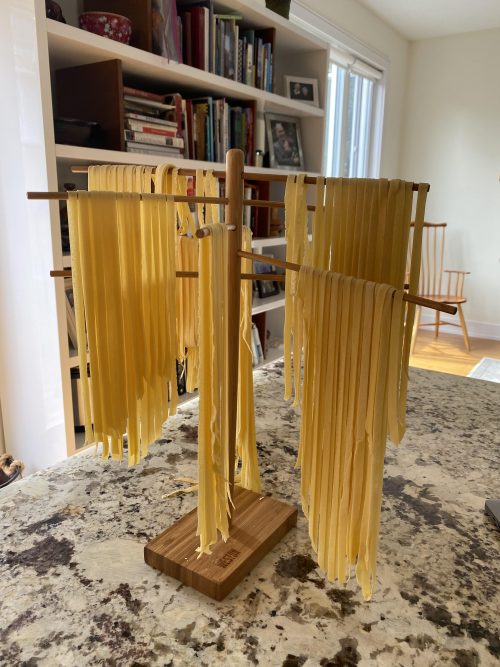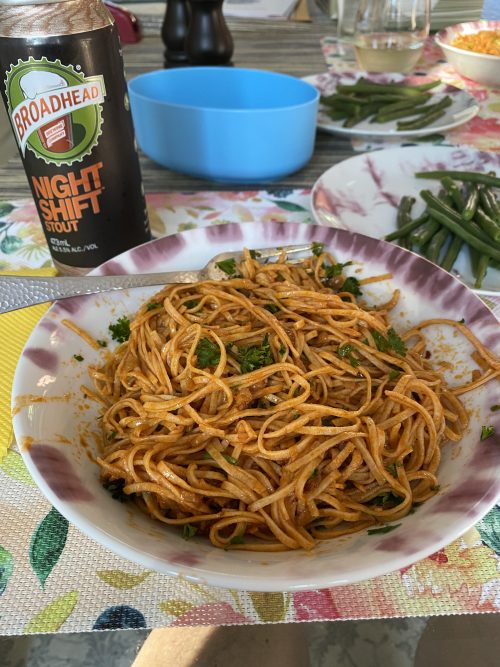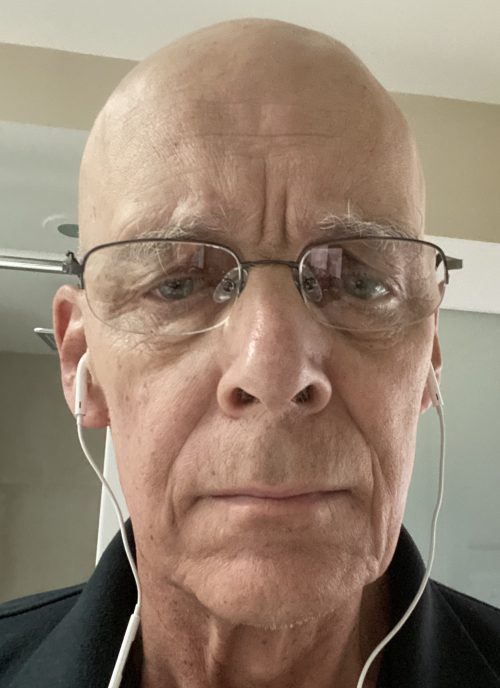To remind you: I am undergoing radiation treatment for an oropharyngeal squamous cell carcinoma. I have now completed 26 radiation sessions, and there are just 9 more to go. Treatment will end on Friday, September 18th. I am going to get through this, but it is not enjoyable. Here are some notes on what it has been like.
Radiation works by doing more damage to the tumour than to the healthy flesh that surrounds it. My nervous system doesn’t serve the tumour, so even though it is dying and visibly shrinking, there’s no pain in the tumour itself.
However, the damage to the surrounding flesh is considerable. My wife (a physician) commented that with throat cancer, unlike with radiation of internal tissues, you can see the damage that the treatment does to the inside of your throat. “It’s absolutely shocking what your mouth looks like.” At first, I told friends that it was like having a severe sunburn inside my throat. That inflammation was (and is) easily visible. For a while, I found it unpleasant but tolerable. More recently, blisters and ulcers have formed on my tongue, gums, in the soft tissues surrounding my tongue’s base and on the hard palate above it.
The increased damage has made it painful for me to speak or to swallow. The radiation is also killing my salivary glands. There’s less saliva, and the saliva I have is viscous, clogging my mouth and throat. This limits the number of hours I can sleep continuously. My throat clogs, I get a coughing fit, and the coughing wakes me up. (And it hurts.) I then need to clear my throat, possibly take a pain pill, and read until I can go back to sleep.
I agreed — reluctantly — to take Dilaudid, a potent opioid analgesic. I am not taking the maximum dosage, which is lucky because everyone tells me that the pain will continue increasing for the next month. This has helped immensely. However, Dilaudid immediately reshaped my life around a 4-hour pill-taking cycle. First, I take a dose, wait some minutes for it to begin to work, use a flattened club soda rinse to clear the icky saliva, then rinse my mouth with a lidocaine mouthwash. The opioid and lidocaine make it possible to swallow and talk, at least for a while. Each cycle, I try to drink 16 oz of water and an Ensure and perhaps eat a poached egg. Then I read, do some chores, try to work, maybe play Skyrim, or nap until it is time for the next pill.
The radiation also kills my tastebuds. (Curiously, COVID-19 also deprives some people of the ability to taste.) Water now tastes like highly dilute dishwashing soap, and everything else tastes worse. My nostrils, however, are sharp as ever. So while my nose tells me that I have delicious food on my plate, my mouth tells me that it is inedible.

Moreover, if I can’t taste, I can’t cook. It’s insane to be upset about this: I also won’t be able to cook if cancer should kill me. But cooking is my only craft skill (well, besides R coding and expository English prose). My wife and I are cooked-family-dinner-every-night people, family-feast people, bread-and-wine-and-beer-and-friends people. We are restaurant people and food tourists. Preparing and serving food to others is work I do to sustain love.

People tell me that my ability to taste will — probably — mostly return. I surely hope so. Should you get oral cancer, I recommend the autobiography of Chef Grant Achatz, the creator of Alinea in Chicago. At the peak of his career, he developed my cancer, but unfortunately, it was diagnosed at Stage 4. He was expected to lose his tongue and even then was given only an even chance of surviving two years. Instead, he chose a radical treatment plan: chemotherapy, followed by 64 sessions of radiation, followed by a surgery that preserved most of his tongue. As a result, chef Achatz has recovered his ability to taste.

That’s all in a hypothetical future. Right now, it takes discipline just to eat. I have lost 20 lbs. Cancer — or its treatment — seems to induce anorexia. I’m clearly starving, yet I have no appetite. Cancer has a look, a kind of grayness or weathering. I’m just starting to be able to see it. My wife says that I have had it for some time. My iPhone face recognition no longer recognizes me.

